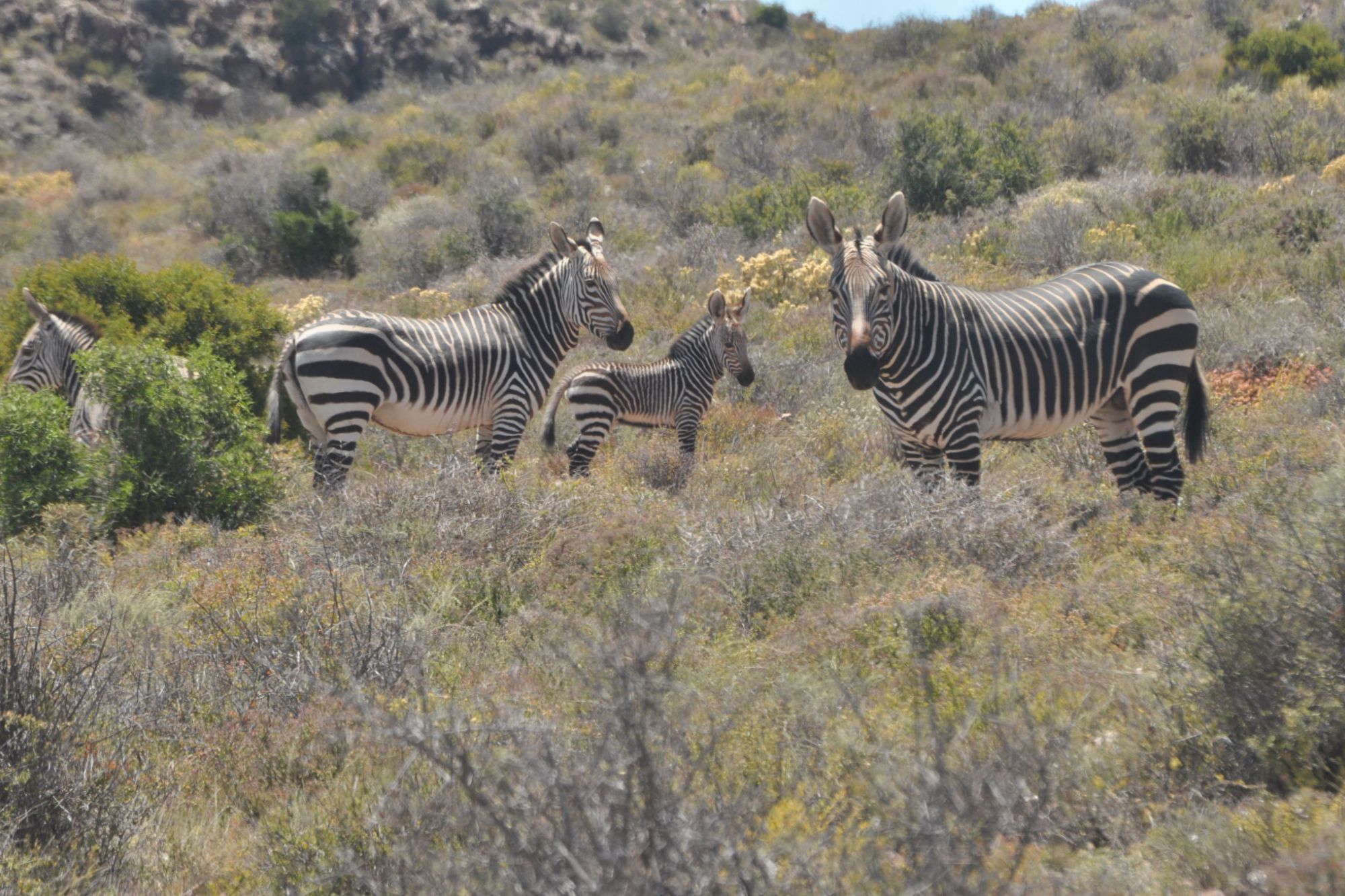
One of a kind – a unique Cape mountain zebra foal born at Sanbona
The birth of a unique foal at Sanbona Wildlife Reserve is a beacon of hope for Cape mountain zebra conservation. Over the last 300 years, hunting and habitat destruction has decimated Cape mountain zebra numbers and isolated the three remaining small populations. Genetic drift over subsequent generations resulted in three genetically distinct stocks. Public and private conservation efforts led to a substantial increase in numbers, which resulted in the Cape mountain zebra being removed from the IUCN Red List of threatened species; except for one of the three stocks, which remained isolated and showed signs of inbreeding.
Until recently, Gamkaberg Nature Reserve, near Calitzdorp, was the only place in the world where zebra of this stock occurred. In 1974, the already small Cape mountain zebra population on Gamkaberg was reduced to only six animals when seven were poached by a local farmer. The expansion of the nature reserve through land purchases by the World Wide Fund for Nature South Africa has helped the population to grow, but the genetic problem remains.
To address this, CapeNature and Sanbona developed a genetic rescue plan in consultation with experts from SANBI and the University of Venda. The chosen location for the project was Sanbona Wildlife Reserve. Sanbona, at the foot of the Warmwaterberg Mountains, was the ideal zebra genetic mixing bowl. At 62,000 ha, it is already home to a large and growing Cape mountain zebra population. This includes animals of mixed Cradock and Kammanassie stock from De Hoop Nature Reserve, which CapeNature made available to Sanbona in 2016 under a custodianship agreement. In 2021, the agreement was taken a step further when three stallions were translocated from Gamkaberg to a dedicated genetic rescue camp in Sanbona. The following year, a group of Sanbona mares – some of Cradock stock and some of De Hoop origin – was added to the camp.
Although initially stand-offish, the stallions and mares eventually warmed up to one another. Sadly, two of the stallions died – one of unknown causes and the other as the result of a severe tooth abscess. The success of the genetic rescue project then hinged on the performance of the only remaining stallion, five-year old GB42. It has now become clear that he has met his brief. Liesl Vorster, Sanbona’s ecologist, spotted GB42 with a Cradock mare and their precious young offspring. The foal is the only Cape mountain zebra in the world which contains both Cradock and Gamkaberg genes. All eyes will be on this little herd in the hopes of another union that will combine all three genetic stocks and help restore what remains of the genetic diversity that was lost to the species many years ago.

The only Cape mountain zebra foal in the world with a combination of Cradock and Gamkaberg genes. Credit: Liesl Vorster, Sanbona Wildlife Reserve




